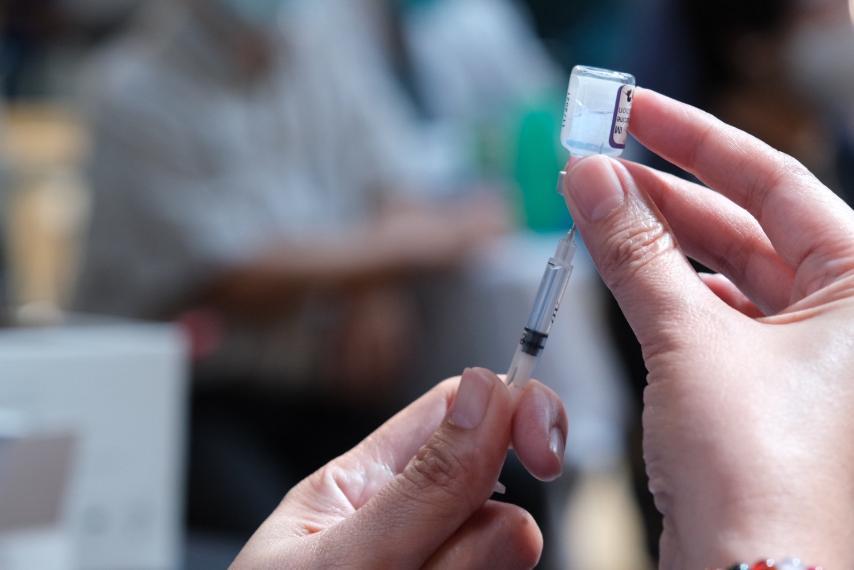Solante suggests targeting vulnerable recipients of bivalent COVID-19 jabs to avoid wastage

Infectious diseases expert Dr. Rontgene Solante on Monday said the government should soon consider targeting the vulnerable population to be prioritized in receiving COVID-19 bivalent vaccines to avoid wastage.
The health professional made the remark when asked what could be done to ensure that these vaccines targeted against the Omicron variant and the original COVID-19 strain will not be spoiled, just like what happened to the 50 million doses that expired in March.
“It's important at this point in time, tignan natin, this is something na ma-testing natin kung maganda pa ba ang acceptance natin sa mga bakuna especially for this COVID-19. Kasi kung halimbawa mababa na ang vaccination rate we need to recalibrate. Most likely, baka moving forward, we just have to target the vulnerable population,” Solante said in an interview on Super Radyo dzBB.
(It's important at this point in time to see and test if our acceptance of vaccines is still good, especially for this COVID-19. If, for example, the vaccination rate is low, we need to recalibrate. Most likely, we just have to target the vulnerable population moving forward.)
“With regards to prioritization, halimbawa hindi ito masyadong maibenta o matanggap sa healthcare workers or 65 years old, dapat mabilis tayong mag-move up to the immunocompromised and those with comorbidities para at least hindi mag-expire,” he added.
(With regards to prioritization, if the bivalent vaccines are not much accepted by the healthcare workers or the elderly, then we must quickly move up to the immunocompromised and those with comorbidities so that they would not go to waste.)
The first batch of bivalent jabs arrived in the Philippines on Saturday. These were more than 390,000 doses donated by Lithuania.
Currently, only adults belonging to A1 (healthcare workers) and A2 (senior citizens) categories are allowed to receive the Pfizer bivalent vaccine as third booster dose. They need to wait at least four months after receiving their second booster shot before they take the next one.
Inoculation for other population groups, meanwhile, will be opened in succeeding phases, subject to the availability of stocks and possible technical changes, according to the Department of Health. —KG, GMA Integrated News




